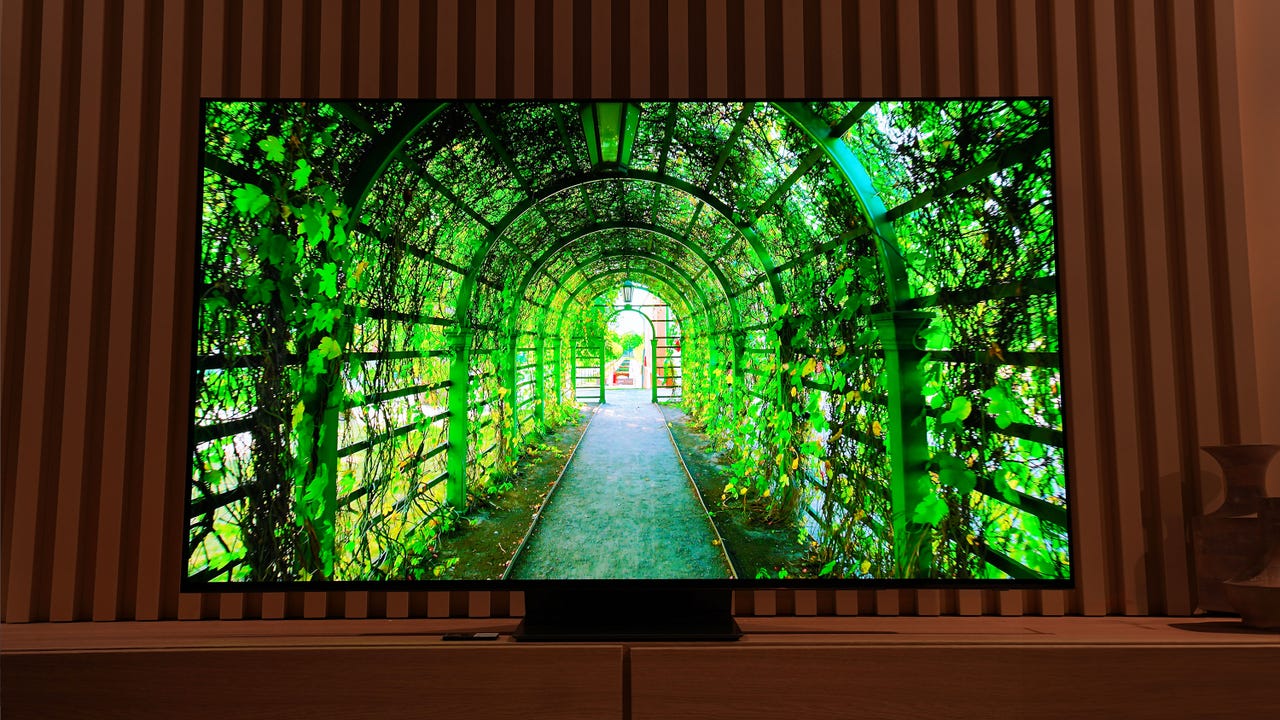'ZDNET Recommends': What exactly does it mean?
ZDNET's recommendations are based on many hours of testing, research, and comparison shopping. We gather data from the best available sources, including vendor and retailer listings as well as other relevant and independent reviews sites. And we pore over customer reviews to find out what matters to real people who already own and use the products and services we’re assessing.
When you click through from our site to a retailer and buy a product or service, we may earn affiliate commissions. This helps support our work, but does not affect what we cover or how, and it does not affect the price you pay. Neither ZDNET nor the author are compensated for these independent reviews. Indeed, we follow strict guidelines that ensure our editorial content is never influenced by advertisers.
ZDNET's editorial team writes on behalf of you, our reader. Our goal is to deliver the most accurate information and the most knowledgeable advice possible in order to help you make smarter buying decisions on tech gear and a wide array of products and services. Our editors thoroughly review and fact-check every article to ensure that our content meets the highest standards. If we have made an error or published misleading information, we will correct or clarify the article. If you see inaccuracies in our content, please report the mistake via this form.
Crystal UHD vs QLED: A comparison for buying Samsung TVs


There's no arguing that Samsung makes fantastic TVs; the questions often come when deciding which model and display type one should buy, especially when there are several models on sale during the holiday shopping season.
If you want the best of the best, two of Samsung's more innovative display technologies, Crystal UHD and QLED, also happen to be the company's most popular, so it can be difficult to determine which one is best for your viewing pleasure.
Also: LG vs Samsung TV: Which brand should you buy?
If you're looking for vibrant displays with HDR with 4K resolution, you're on the right track no matter which of the two you buy. However, there are several notable differences for each technology, like the contrast and color accuracy, which I've listed below.
You should buy a Crystal UHD if...
1. You're shopping with affordability in mind
Samsung's Crystal UHD televisions don't boast as many features as its QLED models, but they're noticeably more affordable. With some light browsing, you can easily find an older class of Crystal UHD Samsung TVs on sale for under $300. That's compared QLED TVs that typically cost above the $500 range. This makes Crystal UHD TVs a better option for a budget-conscious shopper.
2. You just want a TV for everyday, essential viewing
If you're not looking to beef up your home theater with a massive, 8K television and just need a display to catch the news and everyday flicks, then it's not a bad move to save a few bucks and opt for a Crystal UHD TV.
Also: The 5 best budget TVs right now
You oftentimes still get a gorgeous, 4K-resolution image. And if you don't need the bells and whistles of Quantum Dot technology, then you'll settle in just right with Crystal UHD panels. For what it's worth, these TVs can also upscale HD images to deliver more clarity.
3. You want an image that looks good from all angles
Which TV type has the widest viewing angle is debatable, but I've personally found Crystal UHD panels more favorable than QLED displays. This means that the picture quality on a Crystal UHD TV is better maintained and consistent even if you're not facing the center of the TV.
QLED TVs create colors using Quantum Dots, causing pictures to be more directional than the ones created by the LED backlight in Crystal UHD panels. In QLED TVs, the image looks darker and harder to discern from an angle of about 50 degrees and up. This means the image quality can degrade as you move further out from the center of a QLED TV screen. That said, ask any TV enthusiast what they prefer in terms of viewing angles and they may have different, and oftentimes clashing, opinions on which TV is superior.
You should buy a QLED TV if...
1. You want the clearest image quality of the two
QLED displays employ Quantum Dot technology to render bright, colorful, and detailed images. In fact, QLED panels have become Samsung's flagship TV tech, oftentimes competing with LG's OLED displays.
To put it plainly, there are millions of individually-lit pixels in a QLED TV, each emitting a specific color to build out the overall image you see on screen. This complex arrangement of pixels gives QLED the edge when it comes to color accuracy, sharpness, and vibrancy.
2. You want AI to improve your picture quality
Samsung's line of high-end QLED televisions supports what it calls Quantum Processor, which uses artificial intelligence to upscale the picture quality. The TVs are able to recognize lower-resolution videos and images and proactively upscale them with meticulous control over details like backlight dimming to improve the viewer's experience. That way, 1080p content can look like 4K, and 4K content can look like 8K.
3. You prefer true blacks and sharper contrast
The Quantum Dots that make up the QLED panels are capable of emitting not only brighter and sharper images but darker ones for low-lit scenes. QLED displays outperform both LCD and LED displays in terms of color reproduction and, naturally, the images offer a superior contrast ratio.
Also: OLED vs QLED: Which is better for you?
An easy way to visualize this difference is by turning off the light that your TV is in and seeing how the screen looks when there's nothing playing. With UHD panels, you may see what's called backlight bleeding or patches of lighter pixels even though the screen should be black.